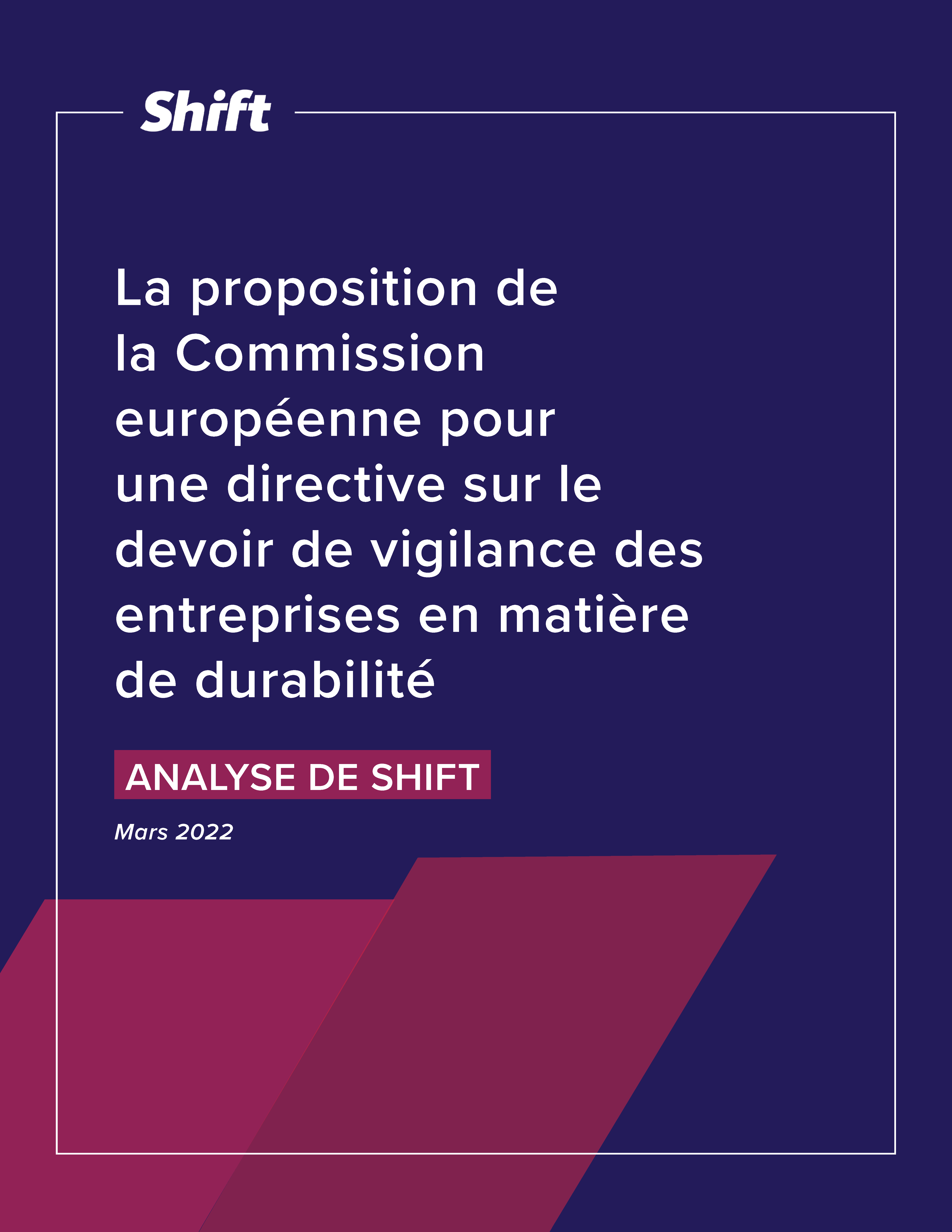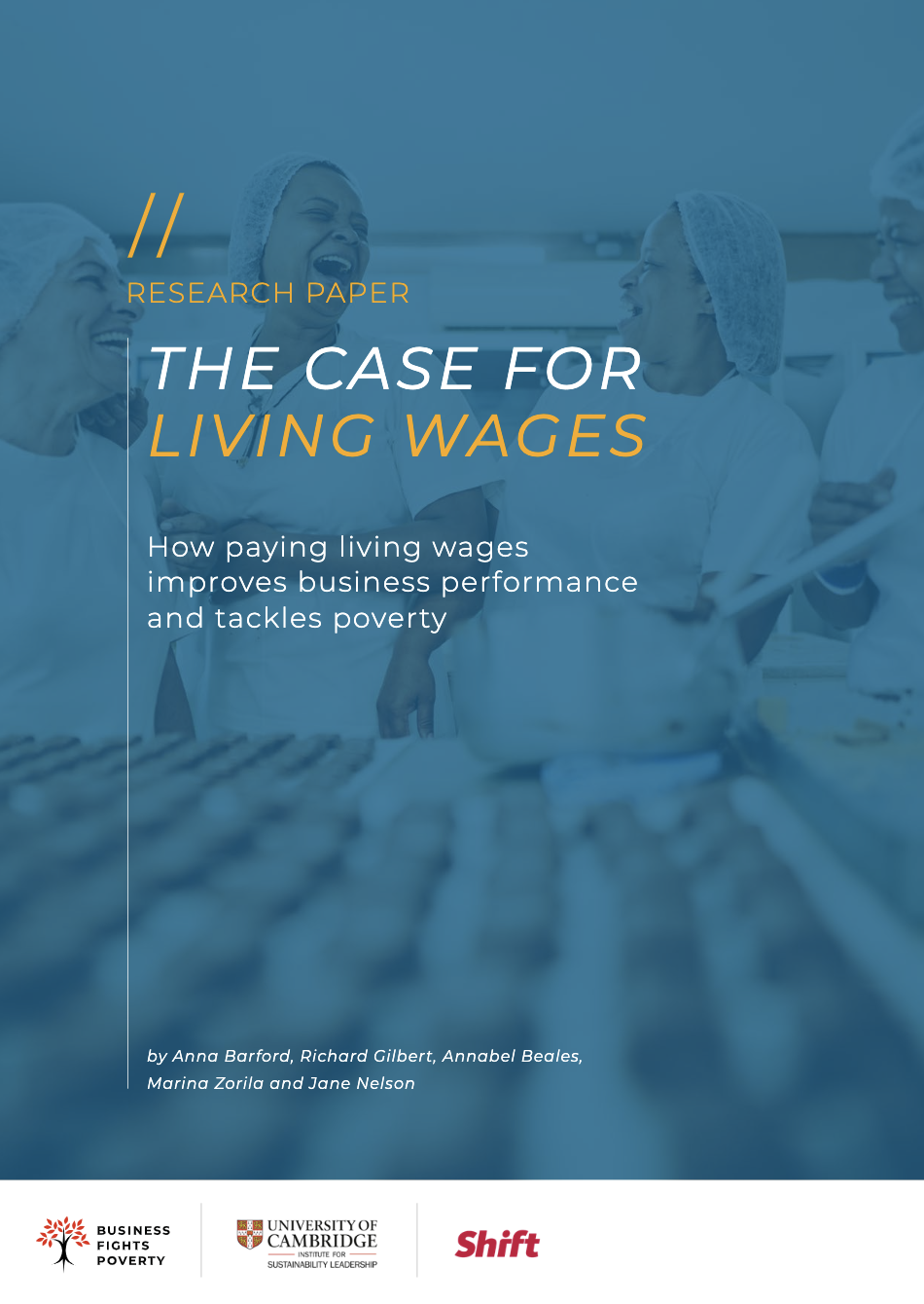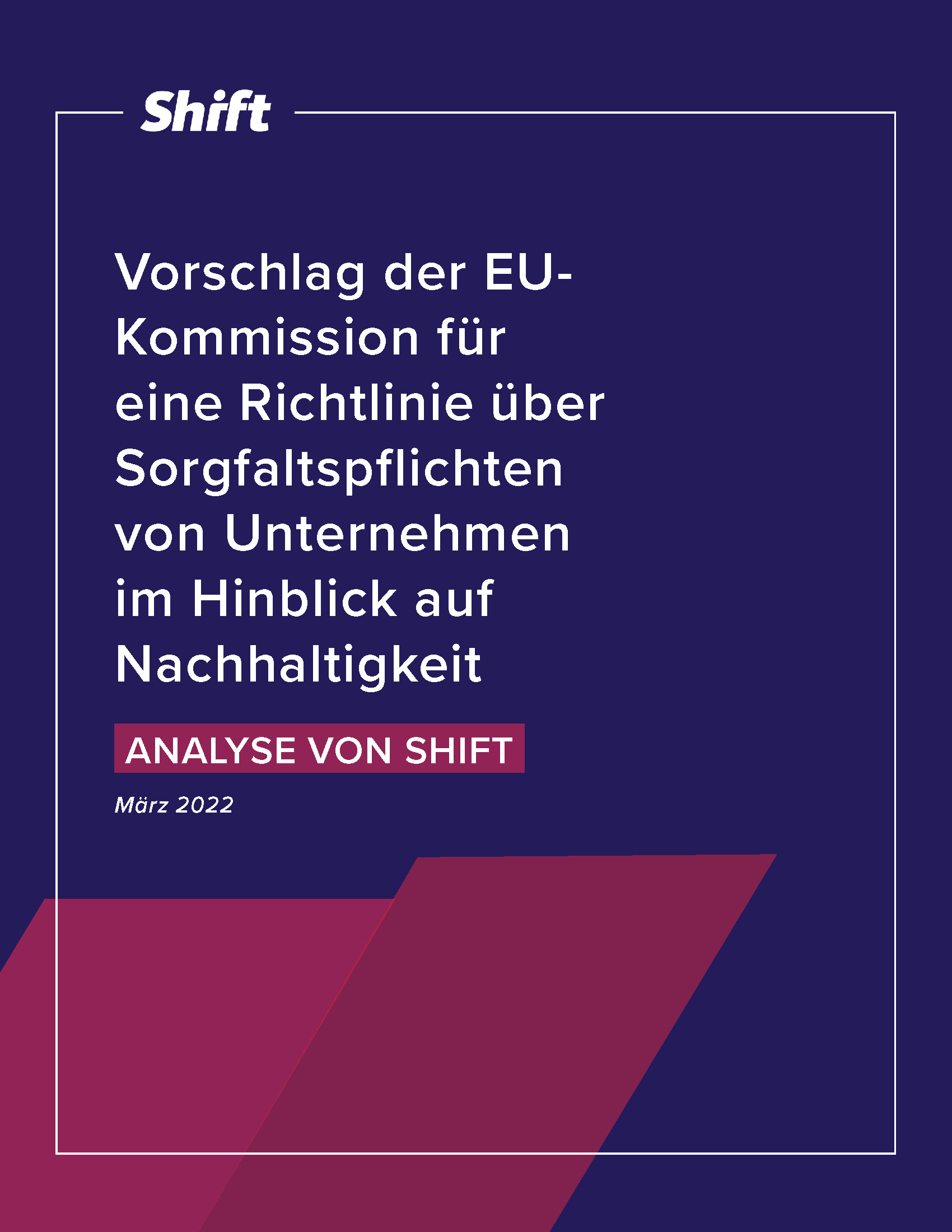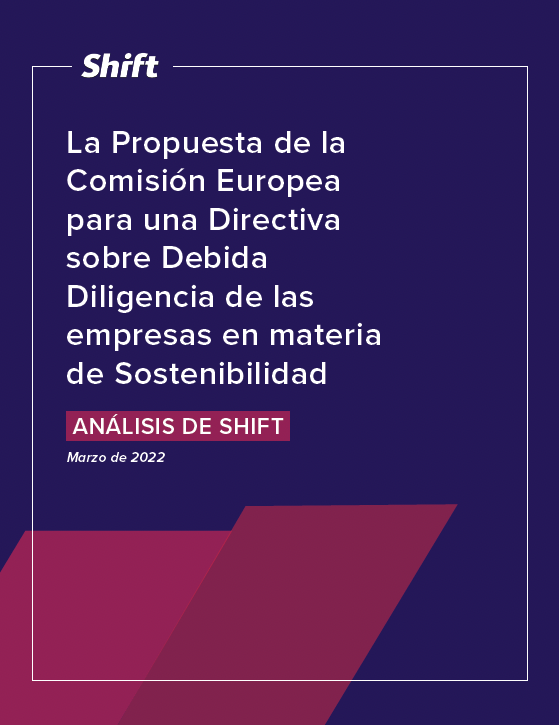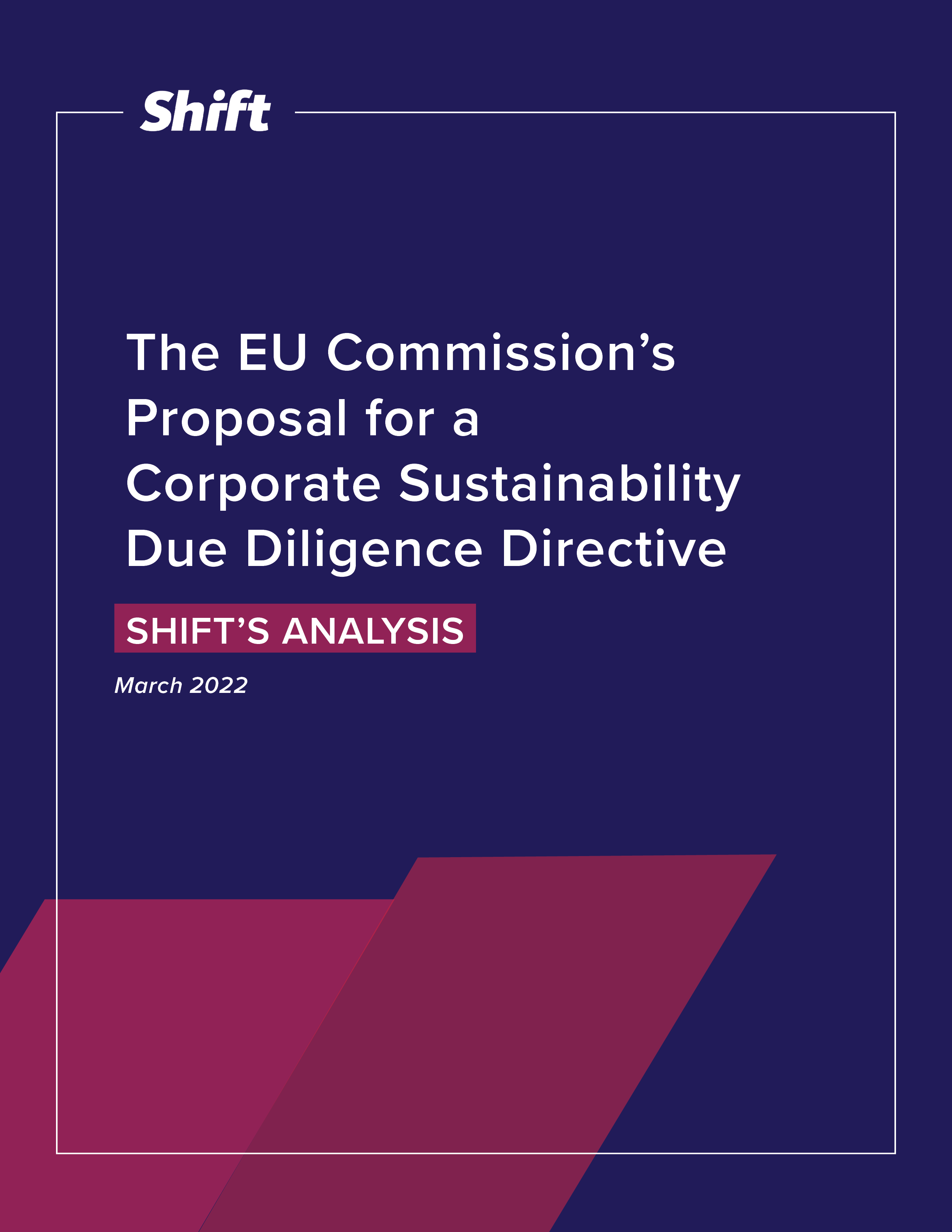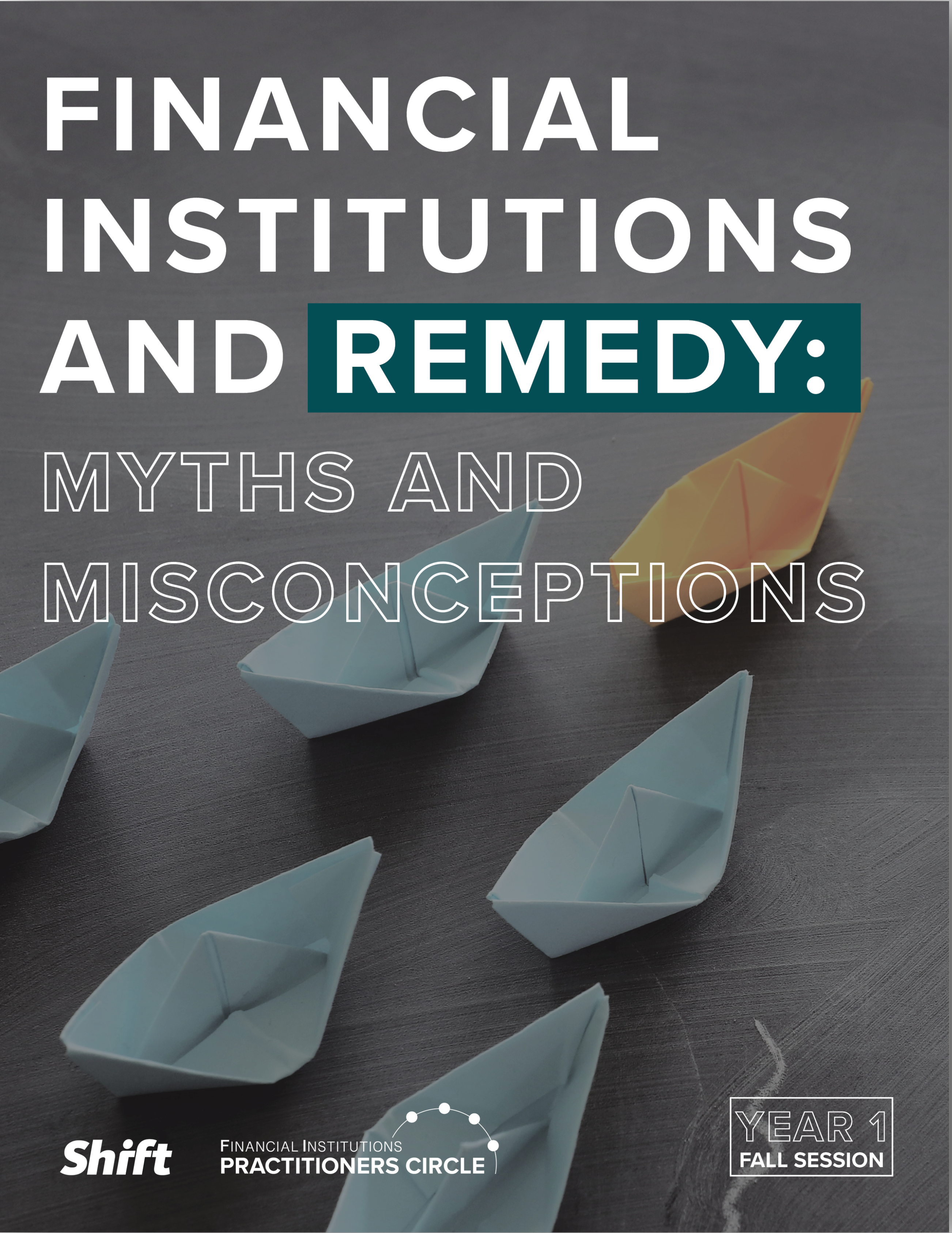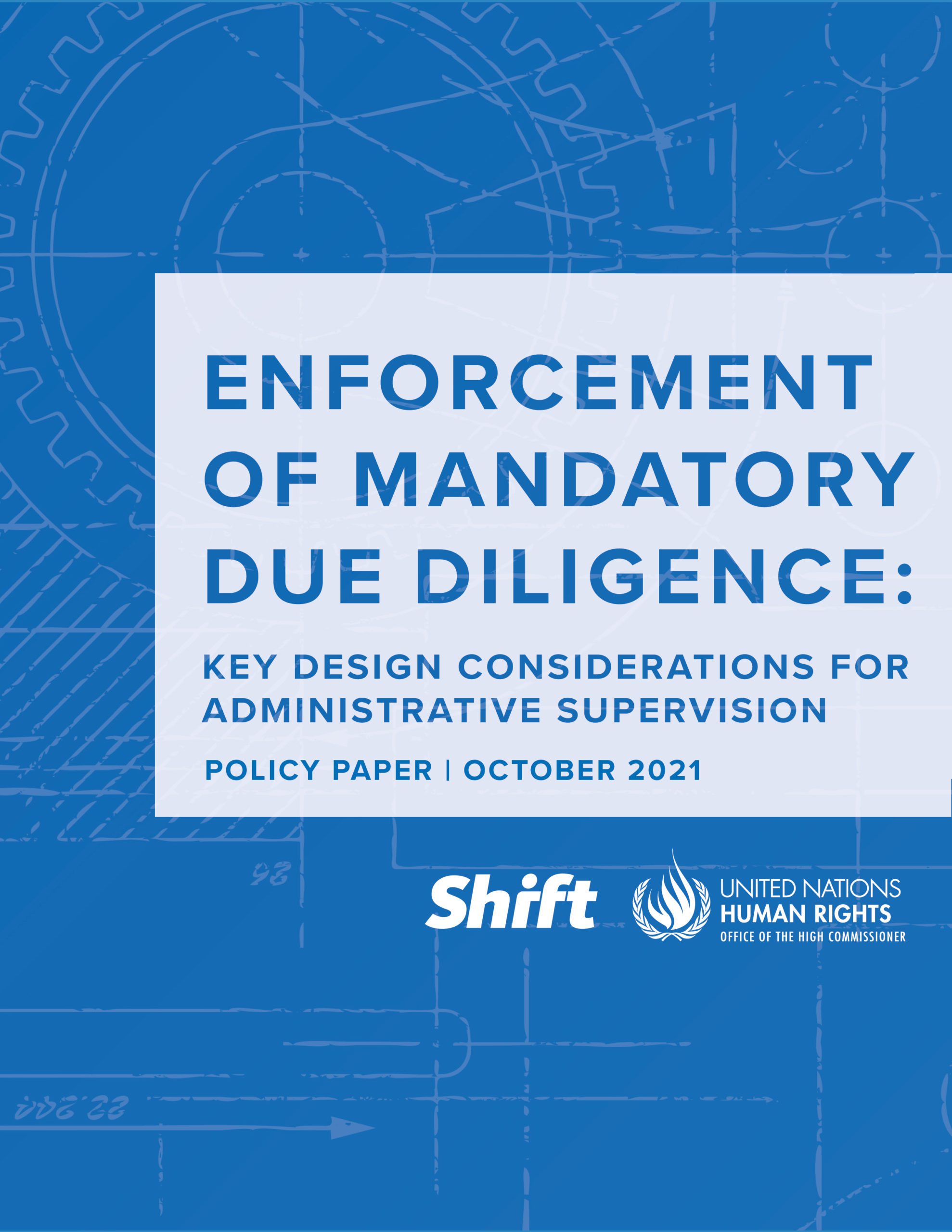Le 23 février 2022, la Commission européenne a publié sa proposition de directive du Parlement européen et du Conseil sur le devoir de vigilance des entreprises en matière de durabilité. L’objectif principal de cette proposition “vise à faire en sorte que les entreprises qui opèrent sur le marché intérieur contribuent au développement durable […] grâce au recensement, à la prévention, à l’atténuation, à la suppression et à la réduction au minimum des incidences négatives potentielles ou réelles sur les droits de l’homme et l’environnement découlant des activités propres aux entreprises, à leurs filiales et à leurs chaînes de valeur.”
La directive peut avoir un impact positif, que ce soit pour les personnes ou la planète, en renforçant la qualité des processus de devoir de vigilance portant sur les droits humains et les risques environnementaux les plus graves, en encourageant des formes créatives d’actions individuelles et collectives pour adresser les risques à travers la chaîne de valeur, en améliorant la gouvernance interne et en élargissant l’accès aux voies de recours pour les personnes affectées par les activités des entreprises.
Cependant, pour que la directive atteigne ses objectifs et réalise l’ambition affichée de veiller à ce que les entreprises du marché intérieur contribuent à la durabilité en prévenant et en traitant les incidences négatives, elle doit être alignée avec les principales normes internationales de diligence raisonnable en matière de durabilité adoptées par les Nations unies et l’OCDE.
Dans cette analyse de la proposition de la Commission, Shift compare les points principaux du projet de directive par rapport aux normes non contraignantes que sont les Principes directeurs des Nations Unies relatifs aux entreprises et aux droits de l’homme et les Principes directeurs de l’OCDE à l’intention des entreprises multinationales. L’analyse se concentre sur les domaines au sein desquels un manque d’alignement sur les normes internationales risque d’entraver la capacité de la directive à atteindre ses objectifs. Shift délivre ici ses premières réflexions pour y remédier.
